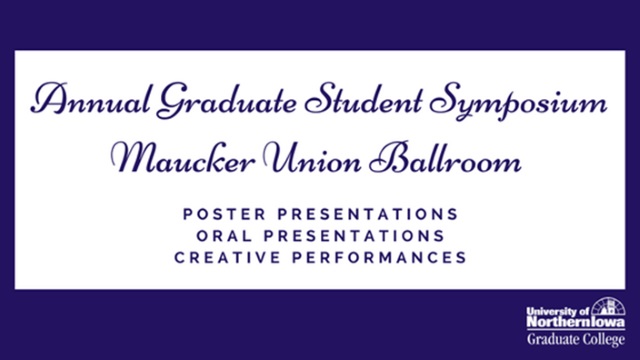
Complete Schedule
Award Winner

Recipient of the 2019 Outstanding Doctoral Dissertation Award - First Place.
To go to the Graduate Student Award Recipients collection page, click here.
Recipient of the 12th Annual Graduate Student Symposium Scholarship Award, Oral Presentations, Elm Room - First Place (2019)
To go to the Graduate Student Symposium event page, Click here
Presentation Type
Open Access Oral Presentation
Keywords
Student-centered learning; English teachers--Attitudes; Student teachers--Attitudes; English language--Study and teaching--Foreign speakers;
Abstract
This explanatory sequential mixed-methods study was undertaken to determine undergraduate English as a Second Language (ESL) students’ beliefs about learner-centered teaching (LCT) practices in English classes and to understand to what extent their learner-centered learning experiences influenced their beliefs about the quality of LCT practices. The Learner-centered Battery Student Survey and focus group interviews were used to collect data. One hundred and twelve undergraduate ESL students at a Midwestern university took part in the survey, 17 of whom, subsequently took part in multiple mini focus groups. Quantitative data analysis included descriptive statistics, t-Tests, and one-way ANOVAs. Results indicated that except ethnicity, age, gender, and college status had no relationship with student perceptions of teaching practices. The participants perceived teaching practices to be highly transitioning towards learner-centeredness.
For qualitative data analysis, constant-comparative framework was used. Three themes emerged from the focus groups — that LCT practices are characteristically learner-focused and learning-focused, set challenges to learning environment, and lead to academic and non-academic outcomes. The participants measured the quality of LCT practices in two ways: evaluating via past learning experiences and identifying learner-centered and non-learner-centered teaching practices. Results indicated that students require facilitative mechanisms in their learning activities, more support in coping with stress and cognitive challenges, and help adjusting with current learning experience. The findings have pedagogical implications for LCT practices in undergraduate English classes with ESL students. This research can serve as a framework for implementing professional development focused specifically on non-learner-centered practices and thus enhance opportunities for transitioning to learner-centeredness.
Start Date
3-4-2019 1:00 PM
End Date
3-4-2019 4:00 PM
Year of Award
2019 Award
Faculty Advisor
Benjamin Forsyth
Department
Department of Curriculum and Instruction
Copyright
©2019 Mahjabeen Hussain
File Format
application/pdf
Embargo Date
4-3-2019
Included in
Bilingual, Multilingual, and Multicultural Education Commons, Language and Literacy Education Commons
Understanding ESL Undergraduate Students' Beliefs About Learner-Centered Instruction
This explanatory sequential mixed-methods study was undertaken to determine undergraduate English as a Second Language (ESL) students’ beliefs about learner-centered teaching (LCT) practices in English classes and to understand to what extent their learner-centered learning experiences influenced their beliefs about the quality of LCT practices. The Learner-centered Battery Student Survey and focus group interviews were used to collect data. One hundred and twelve undergraduate ESL students at a Midwestern university took part in the survey, 17 of whom, subsequently took part in multiple mini focus groups. Quantitative data analysis included descriptive statistics, t-Tests, and one-way ANOVAs. Results indicated that except ethnicity, age, gender, and college status had no relationship with student perceptions of teaching practices. The participants perceived teaching practices to be highly transitioning towards learner-centeredness.
For qualitative data analysis, constant-comparative framework was used. Three themes emerged from the focus groups — that LCT practices are characteristically learner-focused and learning-focused, set challenges to learning environment, and lead to academic and non-academic outcomes. The participants measured the quality of LCT practices in two ways: evaluating via past learning experiences and identifying learner-centered and non-learner-centered teaching practices. Results indicated that students require facilitative mechanisms in their learning activities, more support in coping with stress and cognitive challenges, and help adjusting with current learning experience. The findings have pedagogical implications for LCT practices in undergraduate English classes with ESL students. This research can serve as a framework for implementing professional development focused specifically on non-learner-centered practices and thus enhance opportunities for transitioning to learner-centeredness.


